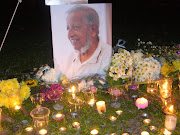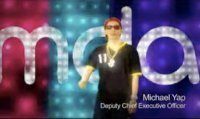Singapore PM raises stakes in FEER defamation case
SINGAPORE, Reuters, Aug 22 - Singapore's Prime Minister Lee Hsien Loong has raised the stakes in a libel suit against the Far Eastern Economic Review, now saying an article in the magazine implied he was corrupt, court documents show. The amendment this week by lawyers representing Lee adds a more serious charge to an earlier claim that FEER implied the prime minister was unfit for office because he had condoned corruption by his father, former premier Lee Kuan Yew.
The August 2006 story that sparked the lawsuit, entitled "Singapore's Martyr: Chee Soon Juan", criticised the government's handling of a pay-and-perks scandal at the country's largest charity the National Kidney Foundation. The charity's former CEO T.T. Durai has since been jailed.
"The article clearly asserted that like Durai, who abused defamation suits to silence his critics and conceal his corruption, Lee Hsien Loong has abused libel suits as a tool to conceal his corruption," the Lees' lawyer Davinder Singh argued in his written submissions to the court for the amendment.
The story written by FEER editor Hugo Restall, who is also being sued, had quoted opposition politician Chee attacking the Lees. The magazine is owned by Dow Jones & Co, in turn owned by media mogul Robert Murdoch's News Corp.
Lawyer Peter Low, representing Restall and the magazine, told Reuters on Friday that he was now amending his defence.
"It raises a serious question as to the genuineness of that pleading if, sometime later, applies to amend to allege an altogether different and much more serious meaning," Low said in submissions to the court against the amendment.
The magazine has argued the article did not defame the prime minister and his father because it was based on facts and fair comment.
But lawyers for Lee Hsien Loong and his father have dismissed the defence statement by the Hong Kong-based magazine as "frivolous, vexatious, scandalous, and an abuse of the process of the court".
Singapore leaders have won damages in the past from foreign media groups when they report on local politics, including the Economist, the International Herald Tribune and Bloomberg.
The leaders in the Southeast Asian city-state say the lawsuits are necessary to protect their reputations. (Reporting by Daryl Loo; Editing by Neil Chatterjee and David Fogarty)
Singapore charges opposition leaders over protest
SINGAPORE, AP, Aug 22 - Singapore has charged opposition party leaders with an illegal procession and assembling without a permit just days after Prime Minister Lee Hsien Loong said the city-state would ease a ban on outdoor public demonstrations.
The Singapore Democratic Party said seven of its members were charged, including party chairman Gandhi Ambalam, general-secretary Chee Soon Juan and his sister, Chee Siok Chin. The party's leaders denied the charges in court on Thursday, while one member pleaded guilty to illegally distributing pamphlets, it said.
"The charges that we face are in complete violation of our basic rights to freedoms of speech, assembly and expression," Ambalam said in a statement on the party's Web site.
A spokesman for the Attorney General's office was not available for comment.
The charges, which carry a maximum fine of 1,000 Singapore dollars (US$712) each, stem from a protest against poverty in Singapore at a 2006 meeting of the International Monetary Fund and World Bank.
Demonstrations in Singapore by five or more people must be approved by police.
It was not clear why the government waited about two years to bring the charges.
"The so-called offenses were supposed to have been committed some two years ago," Ambalam told the court, according to the statement. "It's strange that in our unique Singapore it has taken the authorities such a long time to bring us before you."
Lee said Monday that Singapore will allow public demonstrations at a "Speakers' Corner" where citizens are already allowed to air grievances, as long as they don't discuss race, language or religion. Lee did not specify what he meant by public demonstrations and it was not clear what additional freedoms people would be granted.














No comments:
Post a Comment